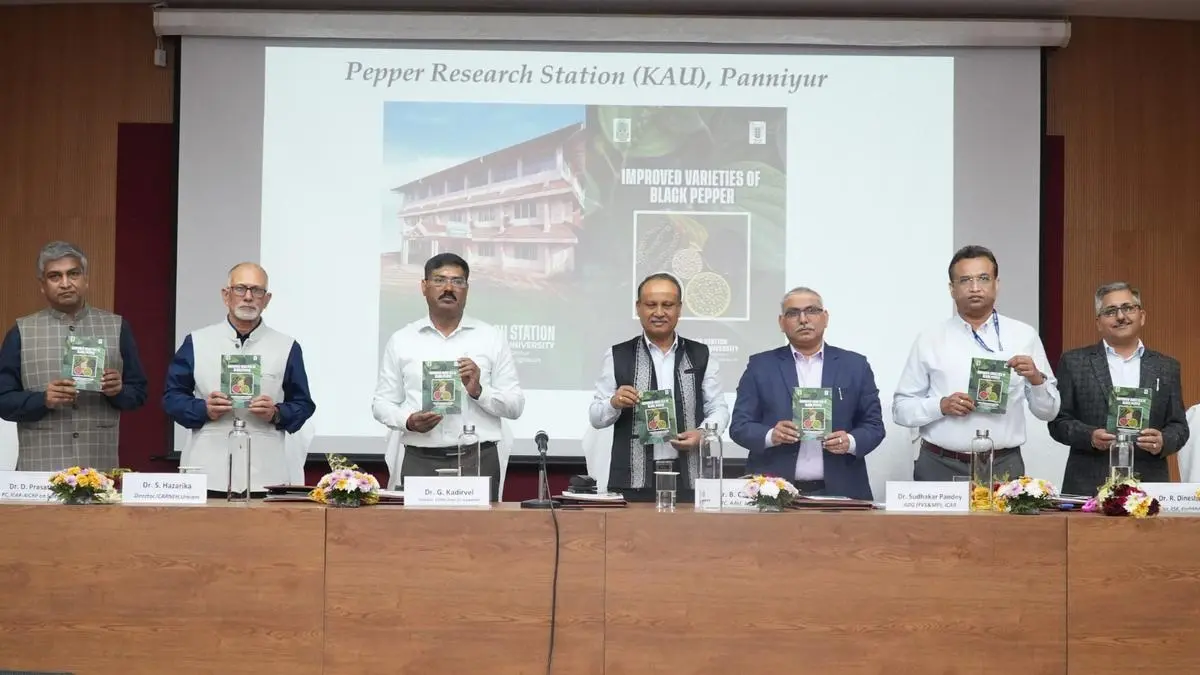Copyright thehindubusinessline

Six high yielding spice varieties has been identified for release during the 36th Annual Group Meeting of the ICAR-All India Coordinated Research Project on Spices (AICRPS). The meeting, which was attended by spice experts and scientists from across the country, was held at ICAR- Research Complex for NEH, Umiam, Meghalaya. Six new high-yielding spice varieties, including three varieties in Ajwain (HAJ-7, JA-19-1 and Ajmer Ajwain-24) one in fennel (RF 231) and two varieties in ginger (V1E45 and IISR Navya) were recommended for release. These varieties are expected to enhance productivity and resilience, aiding farmers in enhancing their farm business income form cultivation of these crops. Apart from these varieties, the workshop also recommended seven new technologies across crop management and plant protection for adoption by the farming community. These include chemical control strategy for pollu beetle attack in black pepper, foliar application of growth regulators for enhancing yield in fenugreek and coriander, biocontrol method for controlling powdery mildew in fenugreek, eco-friendly management of blight disease in cumin, intercropping of various field and tuber crops with ginger for higher economic returns, application of beneficial microorganism Bacillus subtilis for Phosphorus and Zinc solubilization for higher yield in ginger cultivation. Boost productivity These technologies aim to boost crop productivity and address prevalent agricultural challenges. The Annual Group Meeting reaffirmed the commitment of the spice research community to innovate and address the pressing challenges facing the sector. B C Deka, Vice Chancellor of Assam Agricultural University emphasised the need for research institutions to actively support commercial ventures of farmer collectives and other entrepreneurs to establish a vibrant spice economy in the country. This will hasten the process of translating research advances to visible and significant monetary gains for the primary producers of spice commodities. Samarendra Hazarika, Director, ICAR-Research for NEH Region, hoped that the workshop would give high priority for evolving mitigation strategies for the challenges emerging from climate change. He also highlighted the potential for Geographical Indications in spice crops, especially in the North Eastern region of the country. Sudhakar Pandey, Additional Director General, Horticultural Sciences, ICAR stressed on the need to align the targets and aspirations of the spice research ecosystem in congruence with the broader national priorities and vision for agriculture. Published on October 31, 2025



